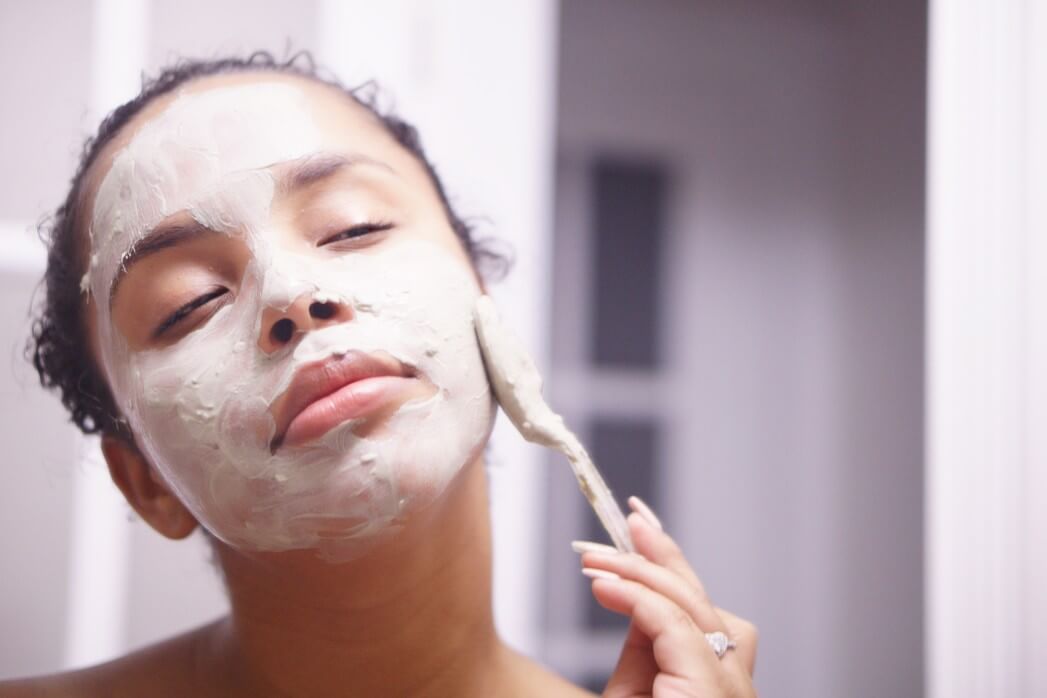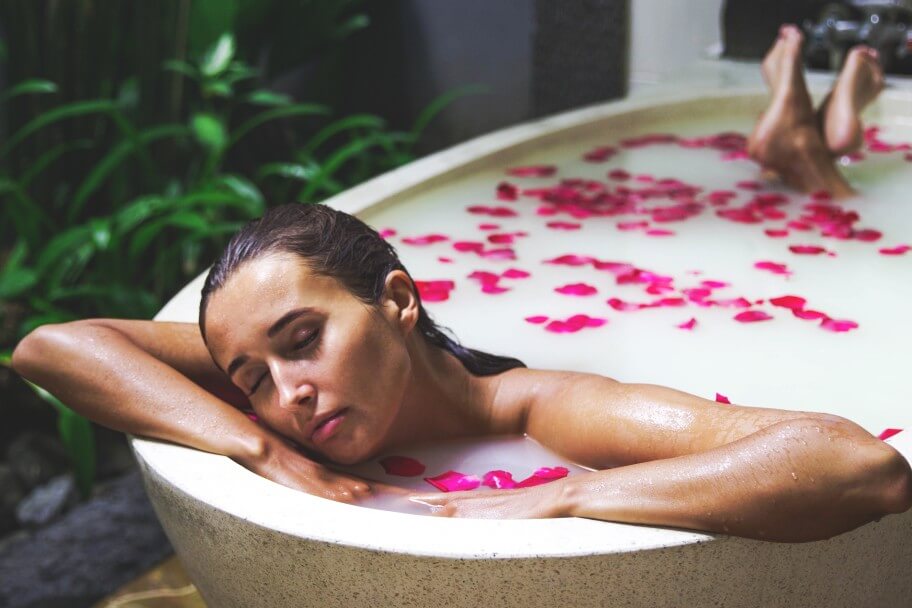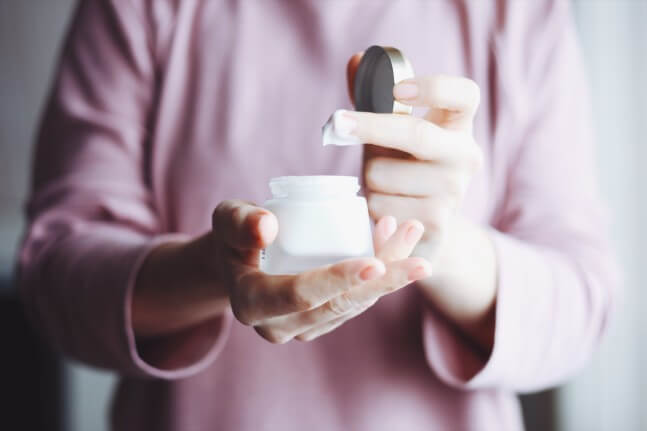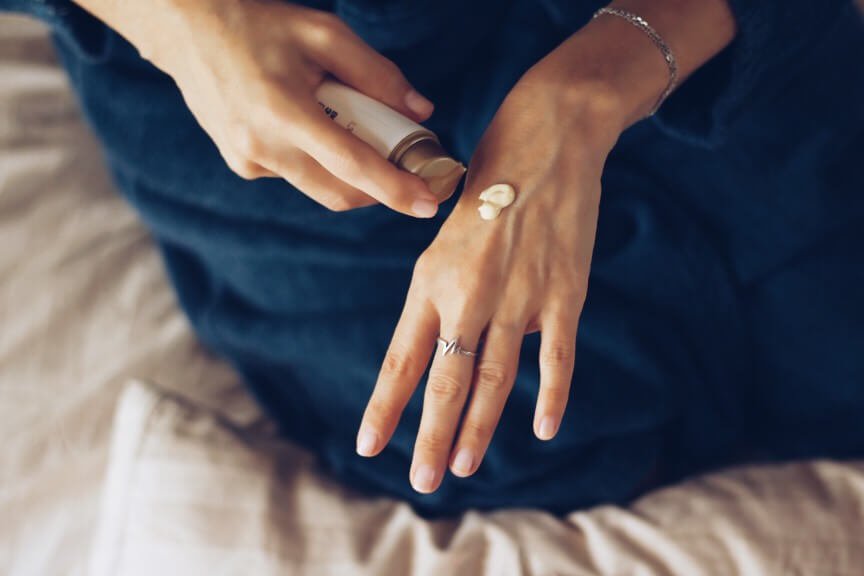Oat milk for skin?
More than a trend, oat milk has become a go-to ingredient in popular skincare products and at-home skin creams.
But you may be wondering if there's any research that proves the benefits of oat milk for skin.
Oat milk and colloidal oatmeal have many health properties that benefit the skin. Experts find that colloidal oats contain anti-inflammatory and anti-oxidative properties.
This article covers the many benefits of oat milk on your skin and how to apply it correctly!
What Does Oat Milk Do For Your Skin?
Oat milk has been found to heal the dryness and itchiness of the skin.
For example, one study found that colloidal oatmeal has numerous anti-inflammatory and antioxidant properties and can help soothe the skin and even clear up symptoms of eczema and psoriasis.
Experts have recommended oats in skincare regimens for as long as we can remember, but there are many studies to back these claims.
However, positive elements of oat milk concerning skincare are not referring to oat milk that you can buy in the milk aisles of the grocery store.
Products intended for use on the skin, like lotions and creams, contain nutrient-dense colloidal oatmeal.
Homemade oat milk using water and oats is the next best option to reap all the benefits that oats can provide to your skin.

Benefits of Oat Milk For Your Skin
Oat milk contains numerous properties that are beneficial for the skin.
More so than plain oat milk, colloidal oatmeal has proven time and time again to help with itching, dry skin, and inflammation.
For starters, oats are high in beta-glucan, which helps to hydrate the skin. Next, oats are high in phenols, which are antioxidants.
Antioxidants are used in skin care to cleanse toxins from the skin to reduce acne.
Additionally, oat milk contains saponins that cleanse the skin with soap-like properties for cleansing the skin.
Related: 4 Benefits of Oat Milk For Your Hair
How to Use Oat Milk For Skin Care
There are a ton of ways that you can apply oat milk or colloidal oatmeal to the skin.
If you're looking to incorporate it into your daily skincare routine, creams and washes are available with colloidal oatmeal.
Soaking in oat milk can help soothe your symptoms if you have eczema or sensitive skin.
Oat Milk Bath
Oat milk baths are nourishing for the skin and relatively simple to prepare. You want to use chopped or milled oats for the best results.
Grind the uncooked oats in a blender or something similar to chop them up finely.
Ensure your tub is clean and free of soapy residue from previous baths.
While the warm water is running, sprinkle a cup of oats into the bath and allow them to soak for at least 15 minutes.
While soaking, the nutrients from the colloidal oats form a protective barrier on the skin to keep it moist. Rinse off with lukewarm or cold water and pat dry.
Related: Can You Heat Up Oat Milk?

pH Balance
Colloidal oats can also balance the skin's pH.
You can soak a washcloth in your homemade colloidal oat milk and apply it directly on dry skin, eczema, or psoriasis breakouts.
5-10 minutes is a sufficient time per soak. Consult your doctor first, of course.
Face Cleanse
Oat milk also functions as a natural cleanser. It is a gentle and natural alternative to face washes that contain harsh chemicals and dyes.
Like many plants, oats contain saponins, naturally occurring compounds with soap-like properties.
Though not all saponins are safe, the ones in oats are and work well to cleanse the skin.
Apply some homemade oat milk to a cotton pad and gently wipe it on your face after washing but before moisturizing.
Lotions and Creams
Many skin care products contain colloidal oatmeal for its soothing effects.
There are face creams, body lotions, and even body washes on the market with great reviews.
The Honest Company makes a colloidal oatmeal soothing balm for eczema and dry skin.
For sensitive skin, try to find a product with limited and natural ingredients.
Fewer chemicals mean less of a chance of having an adverse reaction.

Tips For Using Oat Milk For Your Skin Care Routine
You can apply a few strategies to get the most out of the oat milk in your skincare routine.
The quality of your oat milk and the technique you use when applying it can make a difference.
1. Make Your Own Oat Milk
When you make your oat milk, it's less processed, and you know exactly what's in it.
You can also make colloidal oat milk at home.
The properties of colloidal oats are well researched and shown in numerous studies.
You can drink homemade oat milk but only use colloidal oat milk for external application.
To Make Oat Milk:
- Blend oats and water in a blender for about one minute.
- Strain the mixture into a large container using a cheesecloth.
- Store in the refrigerator.
To Make Colloidal Oats:
- Blend dry oats in a blender until extremely fine. After about two minutes, they should look powdery.
- Use the powder to make oat milk baths, rubs, and healing pastes.
2. Only Use Oat Milk With Simple Ingredients
If you are going to buy oat milk, stick to oat milk brands that have minimal ingredients. Ideally, it should only contain oats and water.
We recommend these two:
Stay away from milk with oils and emulsifiers.
Though they may make your milk taste richer, they take away some health benefits, and you probably do not want to put them on your skin.
3. Use Organic Oats
Oats are well-known for being sprayed heavily with pesticides (CNN).
It's highly recommended to use organic oats to make oat milk.
If you're using store-bought oat milk, look for brands that use organic oats.
4. Start With a Small Area of Your Skin
You'll want to make sure you won't have any allergies or adverse reactions before applying an oat product all over your skin.
You can do a spot test in a tiny area to ensure your skin is compatible with it.
Start by applying a small amount of oat milk or colloidal oatmeal product to a small patch of skin.
To avoid breakouts on the face, try it on the arm first.
Apply the product every day for roughly one week.
If there are no adverse effects like itching or burning, you should be able to start using the product as intended.

Side Effects of Oat Milk On Skin
Oats are gluten-free.
However, they can trigger people with Celiac disease into a harmful reaction.
This is because there is a ton of cross-contamination in the food production process, and equipment that handles oats often handles grains.
At this point, it should be clear that oats have numerous benefits to the skin.
Oat milk can be applied to the skin in the bath, using a soak, and even cleansing.
Colloidal oats are finely ground oats that produce the best results in studies, proving to help treat dry, itchy skin.
FAQ
Is Drinking Oat Milk Good For Your Skin?
Drinking oat milk is good for the skin when compared to dairy milk.
Dairy is notoriously acne inducing, so avoiding it by drinking dairy-free milk like oat milk is recommended.
Many people confuse oat milk with colloidal oatmeal.
Colloidal oatmeal can benefit the skin in numerous ways but regular oat milk is not yet proven to have the same effect.
Can Oat Milk Be Bad For Skin?
Everything is better in moderation, but oat milk has not been found to have any significant unfavorable effects on the skin.
If you are drinking a natural oat milk free of inflammatory ingredients like oils and preservatives, there should be no harmful effects on the skin.
Is Oat Milk Good For Acne-Prone Skin?
As stated above, oat milk has properties that reduce inflammation.
This could help reduce the severity of acne.
In addition, oat milk does not contain the hormones that dairy milk has, which means it will not contribute to hormonal acne in the same way.
Several factors cause acne, one being dirty and oily skin. Oat milk's antioxidant properties can help cleanse acne caused by dirt and toxins.
Related: Does Oat Milk Cause Acne?
Does Oat Milk Help with Eczema?
Colloidal oatmeal has been found to help soothe eczema symptoms, including itchy and dry skin.
It is natural and gentle, so it is a good option for those with sensitive skin.
Always perform a spot test before lathering up with a new lotion.
If you have an adverse reaction, you can keep it contained in that one area.
Which Oats Are Best for Skin?
Colloidal oats are the best choice if seeking benefits to the skin.
Colloidal oats are ground or milled and intended to be mixed with water and applied to the skin.
Colloidal oatmeal protects the skin from the elements and keeps it moisturized.
Care For Your Skin With Oat Milk!
Overall, most reviews and comments about oat milk for your skin have been positive.
This is a great option if you want to nourish your skin from the outside.
It's refreshing, absorbs easily and leaves your skin soft and plump.
The benefits are amazing; try it today!
